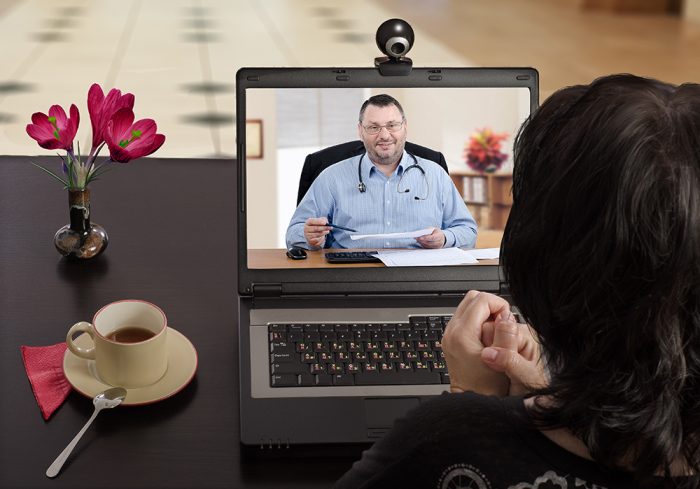Telehealth
RCPA Submits Comments on CMS 2026 Physician Fee Schedule
HR Committee: August 13 Meeting Follow-Up
HB 1590 “4 Walls” Telehealth Legislation Passes House
Message from Rep. Dan Williams’s Office:
HARRISBURG, June 24 – Bipartisan legislation introduced by state Rep. Dan Williams, D-Chester, that would help Pennsylvanians take advantage of new federal Medicaid rules that give patients and clinicians more telehealth options for behavioral health services passed the PA House today with overwhelming support.
“The longstanding and outdated ‘four walls’ requirement has limited Medicaid reimbursement to services within the physical walls of a clinic,” said Williams. “This only creates barriers to care, particularly in rural areas and regions experiencing mental health workforce shortages.”
The Centers for Medicare and Medicaid Services gave states the option to waive the requirement on Jan. 1. In response, the Pennsylvania Department of Human Services has submitted a State Plan Amendment to adopt this flexibility, which is currently awaiting federal approval.
House Bill 1590 would repeal state regulations that conflict with the new federal flexibility. Importantly, the bill would not change existing rules requiring in-person treatment hours for outpatient behavioral health clinics.
“Under this bill, Pennsylvania can fully implement the change, expanding access to behavioral health services and reducing care gaps for our vulnerable populations across the Commonwealth,” Williams said.
The bill now moves to the state Senate for consideration.
It is important to note that, at this time, OMHSAS is awaiting approval from CMS. To address the Federal Medicaid payment conditions in the Pennsylvania statute, there was a need for this legislation to permit services be covered under Medicaid, and HB 1590 would achieve this. It is also important to reiterate that this bill will not change outpatient behavioral health clinic rules requiring in-person treatment hours. The passage of this bill will address these conditions for outpatient clinics as well as the delivery of SUD services.
Both the CMS SPA approval and the legislation would be retroactive to January 1, 2025.
Until then, the completion of both the SPA and the legislation on 4 walls flexibilities will remain in place. RCPA is grateful to have partnered with OMHSAS, House legislators, and other stakeholder associations on the development of this bill. We will continue our efforts in getting the legislation to the Governor’s desk.
If you have any questions, please contact RCPA COO and Director of Mental Health Services Jim Sharp.
DDAP Issues First Telehealth-Only SUD License
The Pennsylvania Department of Drug and Alcohol Programs (DDAP) announced today that the agency recently issued Pennsylvania’s first telehealth exceptions for a DDAP-licensed substance use disorder (SUD) treatment provider in Pennsylvania to Gateway Rehabilitation Center (GRC).
In its press release, DDAP said that telehealth and mobile treatment options have been proven to reduce barriers like transportation, stigma, and provider shortages, especially in rural and underserved communities.
GRC has been an SUD treatment provider in Pennsylvania since 1972. Its telehealth-only program will provide a secure patient portal, an interactive app, encrypted messaging, appointment reminders, resources, education, and a virtual telehealth suite that offers SUD counseling, psychiatric services, medication-assisted recovery, preventive care, and coordination to other levels of care as needed.
Prior to the creation of the telehealth-only licensure category in December 2024, only SUD treatment facilities with a physical location in Pennsylvania could apply to DDAP for a license to also offer telehealth services. This new program does not require a physical location for a treatment provider to administer telehealth services.
A facility seeking to be licensed to provide telehealth-only services, without a physical location, will be required to, among other things:
- Maintain clinical records on a web-based electronic health record program;
- Maintain an electronic system for personnel files, including training records; and
- Agree to provide DDAP remote access to the facility files and client records any time access is requested in accordance with 42 CFR 2.53 — Audit and Evaluation.
HB 1590 “4 Walls” Telehealth Legislation Passes House
Message from Rep. Dan Williams’s Office:
HARRISBURG, June 24 – Bipartisan legislation introduced by state Rep. Dan Williams, D-Chester, that would help Pennsylvanians take advantage of new federal Medicaid rules that give patients and clinicians more telehealth options for behavioral health services passed the PA House today with overwhelming support.
“The longstanding and outdated ‘four walls’ requirement has limited Medicaid reimbursement to services within the physical walls of a clinic,” said Williams. “This only creates barriers to care, particularly in rural areas and regions experiencing mental health workforce shortages.”
The Centers for Medicare and Medicaid Services gave states the option to waive the requirement on Jan. 1. In response, the Pennsylvania Department of Human Services has submitted a State Plan Amendment to adopt this flexibility, which is currently awaiting federal approval.
House Bill 1590 would repeal state regulations that conflict with the new federal flexibility. Importantly, the bill would not change existing rules requiring in-person treatment hours for outpatient behavioral health clinics.
“Under this bill, Pennsylvania can fully implement the change, expanding access to behavioral health services and reducing care gaps for our vulnerable populations across the Commonwealth,” Williams said.
The bill now moves to the state Senate for consideration.
It is important to note that, at this time, OMHSAS is awaiting approval from CMS. To address the Federal Medicaid payment conditions in the Pennsylvania statute, there was a need for this legislation to permit services be covered under Medicaid, and HB 1590 would achieve this. It is also important to reiterate that this bill will not change outpatient behavioral health clinic rules requiring in-person treatment hours. The passage of this bill will address these conditions for outpatient clinics as well as the delivery of SUD services.
Both the CMS SPA approval and the legislation would be retroactive to January 1, 2025.
Until then, the completion of both the SPA and the legislation on 4 walls flexibilities will remain in place. RCPA is grateful to have partnered with OMHSAS, House legislators, and other stakeholder associations on the development of this bill. We will continue our efforts in getting the legislation to the Governor’s desk.
If you have any questions, please contact RCPA COO and Director of Mental Health Services Jim Sharp.
OMHSAS Updates Behavioral Health MA Fee Schedule: Telehealth Group Psychotherapy Codes Added
Last year, RCPA met with its provider members regarding the provision of group psychotherapy services via telehealth in the client’s home. RCPA then met with the Office of Mental Health and Substance Abuse Services (OMHSAS) to discuss the possibility of allowing this flexibility in an effort to fully realize the use of telehealth technology to enhance access.
Today, the Department of Human Services’ Medical Assistance (MA) Bulletin #99-25-02 outlines revisions to the MA fee schedule. The following changes are specific to behavioral services and are effective May 1, 2025:
- Procedure code 99452 (Interprofessional Services) is now open for provider type (PT)/Specialty combination 08/184 (Outpatient Drug and Alcohol).
- Place of Service (POS) 10 — Telehealth Provided in Patient’s Home is now available to use with the procedure code 90853 (group psychotherapy) for PT/Specialty combination 08/110 (Psychiatric Outpatient).
Please see the section titled “Behavioral Health Services” on page 6 of the bulletin for additional information related to these revisions.
If you have questions about these changes, please reach out to OMHSAS electronically or RCPA COO and Policy Director Jim Sharp.
Congress Passes Continuing Resolution; Updates on Medicare and Medicaid Released
StationMD Hosting “Managing Agitation for People With I/DD” Webinar on March 13
The Office of Developmental Programs (ODP) has shared an important training announcement from StationMD, a physician service that is dedicated to individuals with Intellectual and/or Developmental Disabilities (I/DD) and other vulnerable populations.
StationMD is inviting people to participate in a webinar on
“Managing Agitation for People With I/DD.”
The webinar will include:
- General information about the Specialty Telehealth and Assessment Team (STAT) Waiver service in Pennsylvania;
- A presentation from StationMD’s Co-Founder, Dr. Maulik Trivedi on the topic, “Managing Agitation for People with I/DD;” and
- Additional time for questions and answers.
Date:
Thursday, March 13, 2025, from 1:00 pm – 2:00 pm
This webinar qualifies for one training hour. To receive a certificate for the training hour after the webinar, please register in the link below.
Register Now!
Questions about this training may be sent electronically.















